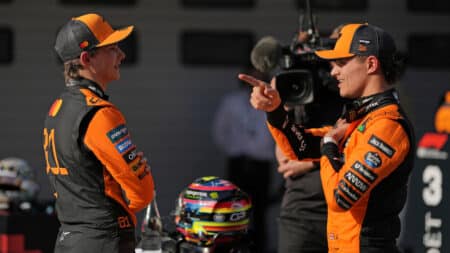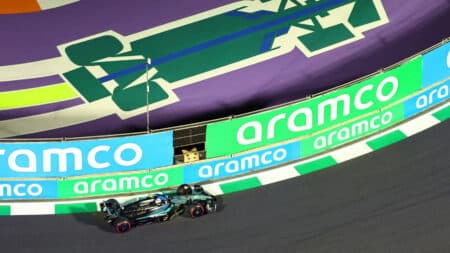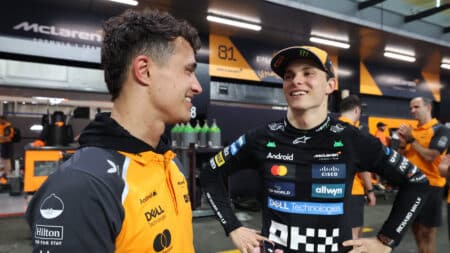
Norris must deal with Piastri's pace – or suffer Mark Webber's fate
As Oscar Piastri moved into the championship lead, his manager Mark Webber's example should serve as a warning to Lando Norris, says Mark Hughes
Jean Todt wants a legacy of significance when his time is up as the president of motor racing’s governing body. You’d be right to expect that from such a man, and indeed he suggests as much to Mark Hughes in our exclusive interview published in the August issue of Motor Sport.
As he says, “you get the keys for a limited amount of time”, and so far there are a lot of people in the sport – including yours truly – who have questioned Todt’s effectiveness as the successor to Max Mosley as the boss of the FIA.
Todt is into his second term since his election in 2009, and tells Mark: “In 2001 it was decided to sell the commercial rights [of F1] for a figure that now seems quite low. But it was in 2001. After I was elected I felt that the FIA deserved to have more income from F1.
“The negotiation to change that for the next period, covering 2013-2020, was quite tough and I think we now have a better deal; not only financially, but in governance as well. The FIA now has a stronger position on governance than when I was first elected.”
When he was at first Peugeot and then Ferrari, Todt always put the priorities of his employers above any other consideration – like any good manager. That hasn’t changed as the president of the FIA, a body that supposedly has a wider remit beyond its own self-interest.
So now he’s got the regulator’s house in order, how effective a leader can he be for motor sport itself – starting at the top with F1?
You could say the new era of fuel efficiency powertrains and small-capacity engines is an achievement, but as Todt himself admits, what we see today was instigated by Mosley.
Below F1, he is striving to simplify the single-seater ‘ladder’, but it’s clear this is very much a work in progress.Rallying remains something of a problem child with a long road ahead of it to return to the strength it enjoyed 10-15 years ago.
It’s in sports cars where I’d argue the president has been most effective, rebuilding strong relations with the ACO at Le Mans and launching the excellent FIA World Endurance Championship.
But a true, sustaining legacy? That’s still far from clear. And as Todt tells Mark, he hasn’t yet decided whether he’ll stay on for a third term – so time could be running out.
With all this in mind, our interview is all the more startling. Todt deflects most of Mark’s questions back to the limitations of governance, about what he can achieve within the remit of an elected politician. You’ll draw your own conclusions from the interview, but it’s a fascinating – if frustrating – article to read.

Todt holds the keys, but appears to lack the power to use them.
There’s also a contradiction at its heart: while Todt wants to make a difference, he also seems to accept, without a hint of fight, that he can’t control the F1 teams. In fact, he argues he shouldn’t be able to. Jean-Marie Balestre must be spinning…
“The FIA is just a regulator,” he says at one point. “I feel it’s absurd to spend so much money for 19-20 races with two cars and limited testing. I’m amazed to see the level of freight that has to be transported. It seems crazy, but [the teams] seem happy with it.”
But what if it’s not sustainable?
“They have to be responsible, too. Why should the governing body be responsible for those who compete? In a way I’m happy to co-ordinate as much as possible, have as much dialogue as possible. But if most of them don’t want that…
“If the actors are happy about the situation, it’s their money.”

Elsewhere in the August issue, Mark writes about the power wielded by F1’s top teams within the so-called ‘Strategy Group’ – a suitably daft name judging by the lack of foresight shown in its recent decisions on standing restarts etc. What our Todt interview underlines is that it’s not just CVC – the big, bad private equity F1 rights holder – that’s the problem when it comes to the future of motor racing. Some of the teams themselves are an enemy to true sustainability.
So if we can’t rely on Todt for leadership, and the teams as well as the promoter are too self-interested to find a path, who else is there? Erm… Oh dear.
Here at Motor Sport, we’ve made clear our belief that the structure of F1, how it is financed and its sporting perspectives have been knocked out of register for years. You may recall that our April issue, the one with the ‘Che Guevara Bernie’ cover, included our ‘manifesto for change’, made up of practical, if a tad revolutionary, ideas to shake up Grand Prix racing.
Now in the wake of Todt’s interview and increasing debate among teams about the future of F1, we’d like to remind you about those ideas – and call on your support to make them heard. Click here to join our campaign for a sustainable F1 future.

Elsewhere in the August issue, Doug Nye pays tribute to his friend Sir Jack Brabham in a piece that might bring a lump to your throat while also making you smile. The triple world champion, who died on May 19, was the kind of bloke who carried the true spirit of Grand Prix motor racing. We’ll never see his like again.
Beyond that, 60 years of the Jaguar D-type is celebrated with the original prototype and the original test driver Norman Dewis; Olympic sailor Ben Ainslie swaps the high seas for the race track with Prodrive and talks about how motor racing might help his bid to win the America’s Cup for Britain; and Rob Widdows catches up with a blast from the past. Remember Andrea Gilardi? He beat a promising young fella called Michael Schumacher to a world championship just less than 30 years ago…

As Oscar Piastri moved into the championship lead, his manager Mark Webber's example should serve as a warning to Lando Norris, says Mark Hughes

General Motors has pushed back its F1 entry as an engine supplier to 2029, but what does it mean?

As Mercedes dropped down the F1 order in Saudi Arabia, team boss Toto Wolff found a hope in Kimi Antonelli's performance for the team

Zak Brown is still adamant on his approach that Lando Norris and Oscar Piastri are ‘number ones’ at McLaren. But how long will it be before history repeats itself and takes a sour turn?